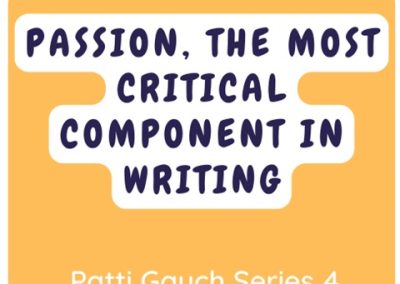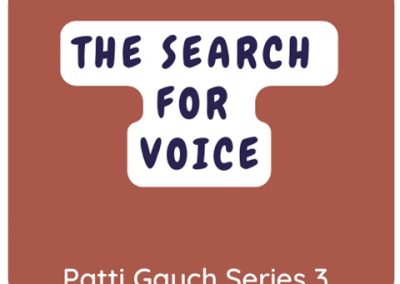 We’d like to thank AC Gaughen (acgaughen.com) for this blog post.
We’d like to thank AC Gaughen (acgaughen.com) for this blog post.
Picture this: you sit at your computer, staged perfectly on an immaculate reclaimed barn door refurbished into a desk, lean back in your comfy, ergonomic chair. The sleeves of your fuzzy but elegant sweater brush the knuckles that are cupping a steaming mug of your caffeinated beverage of choice. Gazing through curls of steam, you look into the distance past your computer screen to watch the swans slowly gliding forward on the lake, tugging tiny rippling wakes behind them.
Wow, it is SO GOOD to be a writer.
The truth is, there’s a lot of not-fun things about writing.
Ok—so if you’re not at, like, deep, expensive, retreat levels of joy in your writing, it’s really ok. No matter where you are on your writing journey, the truth is…there’s a lot of not-fun things about writing. For starters, it’s pretty hard. It requires time that no one has, focus, revision, and don’t forget the blood, sweat, coffee, tea, and tears. And that’s all before you enter the world of publication that is laden with rejection, waiting, lack of control, and a healthy dose of fear—especially when opening the dreaded site Goodreads.
And yet, we still do it. We still labor at this craft of writing that eternally exposes our faults and shortcomings, we stay up too late and wake up too early, we give up time with our families, friends, and second or third jobs. Why? Well, for me, I still kind of love it. It’s part of who I am, and I never feel right when there’s not a story on my mind.
So how do we recapture some of the joy that’s supposed to be in writing?
Maybe you’ve been toiling for years on the same draft and you’re tired; maybe you’re starting a new project and your computer is making you believe you literally forgot how to write since the last thing you worked on. Maybe you haven’t dipped a toe in the writing pool for a while; maybe you’re just looking for something new to do today. Whatever the reason, let’s talk about some easy ways to break out of your own headspace and have a little more fun with your work!
1. Walk Away.
While it’s true that you can’t write your next project if you’re not at the computer, trust me on this one. Grab a notebook and your pen, and go someplace beautiful, entertaining, interactive. Go to a museum, to the seashore, to an escape room, a trampoline park. Have fun. Engage your other interests, your passion, and just keep a candle burning in the back of your mind, waiting to make connections. Waiting to see the threads that connect this joy back to the other joys in your work.
2. Write Badly.
And don’t care if it’s bad or not. Define ‘bad’ however you want—maybe you want to rip off someone else’s work and write out a scene of your favorite movie. Maybe you want to try and make something purposefully ridiculous, or overdramatic, or implausible. Maybe you’re writing to entertain yourself, to explore, to pretend. Give yourself permission to write badly, mostly because often times this will do one of two things—end up being work that you can edit into something usable, or a way to clear your throat to access the words you really want to write. Often what we consider to be “bad”, we really just mean that for some reason, we’re emotionally gravitating toward it—and that’s actually the key to this whole writing business. If you want to write it, someone else wants to read it. If it feels fun and refreshing to you, it will to them also. Maybe not everyone, but it might just make an impact with someone out there.
3. Play with color (and office supplies)
When I get stuck, I love post its. I stockpile them in the brightest, most saturated colors—sometimes SO saturated it doesn’t really make sense because it’s hard to read my pen on them and I have to use sharpie. When I start thinking about a story with post-its, it just feels less committed. I can move them, crumple them, stack them, and cross them out—the world will not crumble when I do. It feels low-pressure. The colors feel like a treat to my eyes, and I let myself imagine different ways to organize my thoughts into colors. It feels fun. I look for other things that do the same—either give me a reward (buying new pens or notebooks!), or feel like they’re not imposing pressure on my creativity (thinking, moving, rearranging). Toward the end of a lengthy editing process, I do the same thing in Scrivener, using changing icons to organize and color code my work, giving me a little bit of brightness, play, and low-pressure organization.
4. Play with words
One of the best things I do with my writing students is play games. Leave your manuscript behind, and challenge yourself to play games with your story or your characters. Take personality tests “as” your character on Buzzfeed; play get-to-know-you icebreakers out in your mind. Think about how your character describes themselves, and think of how others would describe them. Write a story that their grandfather used to tell at the dinner table. Write down what is kicking around under the seats in their car. Use writing exercises to do what they were intended to do—teach you new ways of looking at your characters and treating them as if they were real, full people with histories that have extended long before they arrived on the page and have a complicated web of people and circumstances around them. The same goes for a setting, real or fictional. The same goes for plot. The more you play, the more you are willing to dive in and experience this world, the better off you’ll be when you sit down to write again.
5. Embrace the absurd–and learn from it
Talk with a toddler and you’ll remember that a story can come out of anything. Some of the best stories take incredible specific and disparate people or things and bring them together in conflict—and that’s a story. So maybe trying to make a chair into a dragon is absurd, but…what if it isn’t? What if you choose to believe, to spend more time imagining things as they couldn’t possibly be, and then trying to scaffold the world around them? Maybe your chair will never become a dragon, but ultimately, the creative muscles you’re stretching will give you greater confidence and ability to create a new narrative in the world—the story that only you can tell.
Ultimately, the only way for us to find joy in writing and keep that joy within us is to trust that we have the capacity to tell stories, and to assume there is something magical, wonderful, and even wondrous waiting for us in those words. If you can find that fragile light, if you can hold onto it, you have a chance at the greatest moment I’ve ever experienced—being able to light that candle in another and share your story, your joy, through your words.
So don’t give up just yet. You still have a tremendous amount of joy inside you!
 A. C. Gaughen is the author of the Scarlet Trilogy (Scarlet, Lady Thief , Lion Heart) and the Elementae series (Reign the Earth, Imprison the Sky). She serves on the board for the non-profit Boston GLOW, creating opportunities to encourage and engage teen girls in the Greater Boston area, and works as an engagement manager for Girl Scouts of Eastern MA‘s 15,000 adult volunteers. She has a Masters in Creative Writing from St. Andrews University in Scotland and a Masters in Education from Harvard University.
A. C. Gaughen is the author of the Scarlet Trilogy (Scarlet, Lady Thief , Lion Heart) and the Elementae series (Reign the Earth, Imprison the Sky). She serves on the board for the non-profit Boston GLOW, creating opportunities to encourage and engage teen girls in the Greater Boston area, and works as an engagement manager for Girl Scouts of Eastern MA‘s 15,000 adult volunteers. She has a Masters in Creative Writing from St. Andrews University in Scotland and a Masters in Education from Harvard University.






